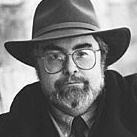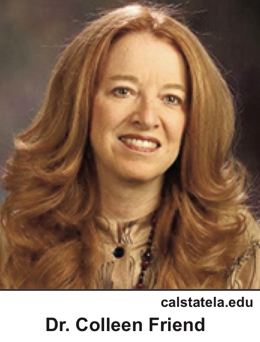Rascals case in brief
In the beginning, in 1989, more than 90 children at the Little Rascals Day Care Center in Edenton, North Carolina, accused a total of 20 adults with 429 instances of sexual abuse over a three-year period. It may have all begun with one parent’s complaint about punishment given her child.
Among the alleged perpetrators: the sheriff and mayor. But prosecutors would charge only Robin Byrum, Darlene Harris, Elizabeth “Betsy” Kelly, Robert “Bob” Kelly, Willard Scott Privott, Shelley Stone and Dawn Wilson – the Edenton 7.
Along with sodomy and beatings, allegations included a baby killed with a handgun, a child being hung upside down from a tree and being set on fire and countless other fantastic incidents involving spaceships, hot air balloons, pirate ships and trained sharks.
By the time prosecutors dropped the last charges in 1997, Little Rascals had become North Carolina’s longest and most costly criminal trial. Prosecutors kept defendants jailed in hopes at least one would turn against their supposed co-conspirators. Remarkably, none did. Another shameful record: Five defendants had to wait longer to face their accusers in court than anyone else in North Carolina history.
Between 1991 and 1997, Ofra Bikel produced three extraordinary episodes on the Little Rascals case for the PBS series “Frontline.” Although “Innocence Lost” did not deter prosecutors, it exposed their tactics and fostered nationwide skepticism and dismay.
With each passing year, the absurdity of the Little Rascals charges has become more obvious. But no admission of error has ever come from prosecutors, police, interviewers or parents. This site is devoted to the issues raised by this case.
On Facebook
Click for earlier Facebook posts archived on this site
Click to go to
Today’s random selection from the Little Rascals Day Care archives….
Click for earlier Facebook posts archived on this site
Click to go to
Today’s random selection from the Little Rascals Day Care archives….
Parent said God knew better than ‘Frontline’
April 17, 2013
“One day you will stand before almighty God and be accountable for that which you have done here on Earth, and no amount of lies and manipulation, no ‘Frontline’ presentation will be able to hide the truth from him. He knows every sordid detail and I pity you for that.”
– From a statement read by Little Rascals parent Susan Small at the plea-agreement hearing of Scott Privott (June 16, 1994)
On the scale of responsibility for brutalizing the Edenton Seven, the panicked, misinformed parents may rank as least culpable. They were neither demagoguing public servants (the prosecutors) nor overreaching professionals (the therapists). Even so, Susan Small’s tirade seemed gratuitously vitriolic – as if her own beliefs might have needed reinforcing?
I asked Scott Privott what it felt like being on the receiving end that day in the courtroom.
“I almost got up and told her to shut the hell up and that I would let the state put me on trial,” he said. “I thought to myself that I was glad God would judge me and not her and her pathetic cohorts.”
Scott’s recollection of his earlier knowledge of Susan Small highlights the Lilliputian stage on which the sprawling Little Rascals drama played out:
“I was in college with Susan Small’s husband, Morris; in fact, Morris and I used to ride together from Edenton to Elizabeth City to attend classes at the College of the Albemarle. Susan was at the college too, but I didn’t know her that well. Morris was my banker at the time of my arrest.”
A third member of the car pool: Jay Swicegood, another accusing parent.
“I am not like some of those who’ve been falsely accused and hold no ill feelings,” Scott says. “I have plenty of ill feelings, and I do not for one moment wish them any good tidings.”
Idle thought: Might it mitigate Scott’s bitterness if someone – anyone! – who participated in putting him behind bars for three years and eight months had the courage to apologize?
From Trump to Pizzagate, Internet is geyser of malinformation

charlespierce.net
Charles P. Pierce
Dec. 7, 2016
“If you do a Google search right now for ‘McMartin preschool tunnels,’ you will be inundated with ‘studies’ and ‘reports’ that ‘prove’ the tunnels did exist, and that the lurid fictions prompted out of the children by ambitious social workers were therefore true. Nothing dies on the Internet, not even the most arrant lunacy….
“One of [Donald Trump’s] primary surrogates, Scottie Nell Hughes, told an NPR panel that ‘There’s no such thing, unfortunately, anymore as facts.’ But we have not ‘entered’ an age of post-truth politics. We’ve been living in it for years. The Executive Branch of the government just has been slow to catch up. Now, it’s right there with the rest of us, god help the country. We’re all just the children of McMartin now. We’ll say anything we’re told until we come to believe it ourselves.”
– From “America Was Always a Nation of Conspiracy Theorists. Now, They’re Simply More Dangerous: Lessons from Pizzagate” by Charles P. Pierce in Esquire (Dec. 5)
![]()
Catholic clergy abuse scandal unrelated to day-care cases
 Nov. 18, 2015
Nov. 18, 2015
“Readers who want a deeper look at how young children’s accounts of CSA (child sexual abuse) were discredited in the same time frame of the (Roman Catholic) clergy CSA scandal should read Ross Cheit’s 2014 book ‘Witch-Hunt Narrative: Politics, Psychology and the Sexual Abuse of Children’….
– From “ ‘Spotlight’ Gets A Lot Right” by Colleen Friend in the Chronicle of Social Change (Nov. 15)
Whoa.
The clergy sex abuse scandal at the center of the just-released newsroom drama “Spotlight” had nothing to do with the “satanic ritual abuse” moral panic so earnestly if unpersuasively denied by Professor Cheit.
Clergy abuse was all too real, and the evidence proved undeniable; abuse in day cares was a fantasy produced by undertrained and overreaching therapists. Tragically, the children’s accounts that were “discredited” were their original denials that they had experienced abuse.
Worth noting: Dr. Friend is former director of Stuart House in Santa Monica, Calif., a child abuse treatment center opened to accommodate the tidal wave of (mostly imaginary) abuse cases spawned by McMartin.
Faulty ‘mental tuning forks’ betrayed therapists
Aug. 23, 2013
“Developing a mental tuning fork for the credibility of a claim, gaining an instinct for when to trust and when to doubt a source – these are two critical components of becoming a confident and effective researcher.”
– From “The Devil in the Details: Media Representation of ‘Ritual Abuse’ and Evaluation of Sources” by Barbara Fister in Studies in Media & Information Literacy Education (May 2003
Although Fister’s observation addresses the challenge of fact-finding on the Internet, it applies just as well to the interviewing of child witnesses. The poorly prepared Little Rascals prosecution therapists – and social services investigators – surely had an overabundance of confidence in their “mental tuning forks” and their “instinct for when to trust and when to doubt.” By contrast, social scientists such as Ceci and Bruck proceed with caution, not credulity.











0 CommentsComment on Facebook